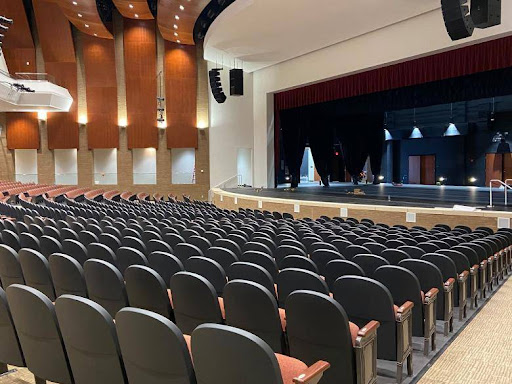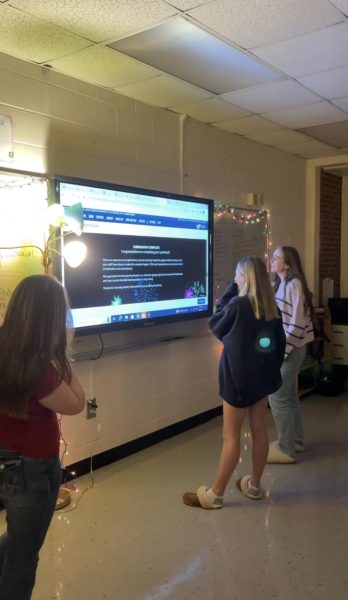Fine Arts Deserve Support Too

One of the local fine arts locations of Forsyth County: The FoCAL center. Photo Credit: Explore Georgia
It is no secret that across school systems in America sports programs receive more funding and support than the fine arts programs. Fine arts programs include art, music, theatre and dance, but these programs cannot continue to produce quality pieces of work without increased support from school systems and the public. As a society, we need to increase support for federal funding of the fine arts programs so that students may reap the multitude of benefits associated with receiving a well-rounded education, which includes the principles of fine arts.
A new study produced by Brookings.edu explains that recent research shows that the level of fine arts education that students are receiving has drastically decreased due to standardized testing, which pressures school systems to focus on core subjects such as math, science, English and social studies.
These core classes help to promote academic growth, but there is new research that proves an increase in fine arts education not only leads to improvement in other areas of academic performance but also prompts students to practice greater empathy and respect for others.
They explain that, “In terms of our measure of compassion for others, students who received more arts education experiences are more interested in how other people feel and more likely to want to help people who are treated badly.”
By providing fine arts education to students, society ensures that these young minds grow up to be high-functioning, productive citizens while also caring for those around them. Increasing these areas of education makes students better people, and therefore, communities better places.
Statistics produced by a national interest group called “Americans For The Arts” shows that students benefit extremely from participating in fine arts programs.
“Low-income students who are highly engaged in the arts are twice as likely to graduate college as their peers with no arts education,” they claim.
This large deficit in the percentages can be solved by increasing the support that fine arts need to keep running. Fine arts boost creativity within the growing minds of students and allowing these skills to flourish during development needs to be included within the classroom.
For many students, sports do not appeal to them or their talents are better suited for fine arts. To deny a student the opportunity to participate in something they are passionate about because it is not athletic is simply wrong. Denying them creative outlets to express themselves, but pouring support into sports is unfair to those and could eventually lead to an increase in depression levels. Students should be supported in all aspects of their school careers and a large part of this is the inclusion of fine arts in school funding and support.

Hey! I’m Abby Shoemake and I’m a senior this year. I’m so excited for my first year of journalism and can’t wait for you to read all of our wonderful...











